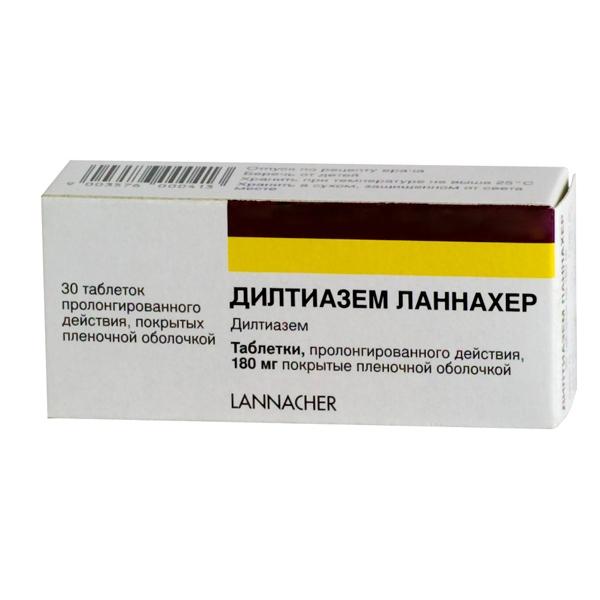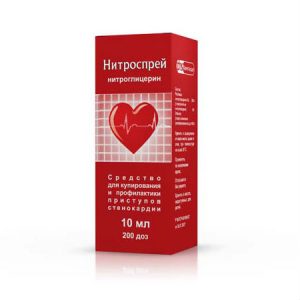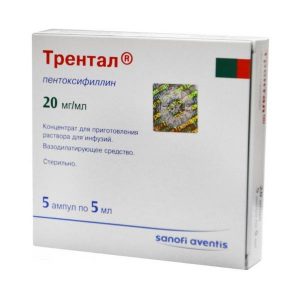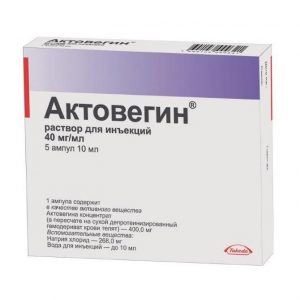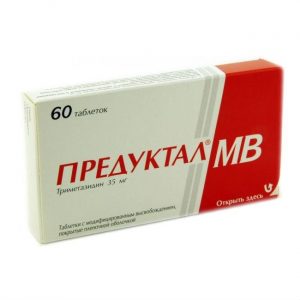Description
Release form
Film-coated retard tablets.
Packing
30 pcs.
Pharmacological action
Selective class III calcium channel blocker, benzothiazepine derivative. Diltiazem Lannacher has an antianginal, hypotensive and antiarrhythmic effect.
Reduces myocardial contractility, slows down AV conduction, reduces heart rate, reduces myocardial oxygen demand, dilates the coronary arteries, and increases coronary blood flow.
Diltiazem reduces the smooth muscle tone of peripheral arteries and OPSS. It reduces the intracellular content of calcium ions in cardiomyocytes and smooth muscle cells of blood vessels, reduces heart rate, can have a slight negative inotropic effect, increases coronary, cerebral and renal blood flow.
In concentrations at which there is no negative inotropic effect, Diltiazem Lannacher causes relaxation of the smooth muscles of the coronary vessels and dilatation of both large and small arteries.
The antianginal effect is due to an improvement in the blood supply to the myocardium and a decrease in its oxygen demand as a result of a decrease in OPSS, systemic blood pressure (afterload), a decrease in myocardial tone, and an increase in the time of diastolic relaxation of the left ventricle.
Indications
Treatment of arterial hypertension
Prevention and treatment of angina attacks (including Prinzmetal angina)
Prevention of attacks of supraventricular arrhythmias (paroxysmal tachycardia, scintillation or palpitations, cardiomyopathy (including Prinzmetal angina)
Prevention of attacks of supraventricular arrhythmias (paroxysmal tachycardia, flickering or flutter before angry extrasystole)
Contraindications
Severe bradycardia, AV block II and III degree (except for patients with a pacemaker), CVS, cardiogenic shock, atrial fibrillation with WPW and Launa-Ganoga-Levin syndrome, myocardial infarction with pulmonary congestion, arterial hypotension, chronic heart failure II B-III stages, acute heart failure, hemodynamically significant aortic stenosis, impaired liver and kidney function, pregnancy, lactation, hypersensitivity to benzothiazepine derivatives.
Special instructions
Diltiazem Lannacher is used with caution in case of degree I AV block, intraventricular conduction disorders, in patients prone to arterial hypotension, chronic heart failure, myocardial infarction with left ventricular failure, ventricular tachycardia with hepatic enlargement insufficiency, in elderly patients, in children (the effectiveness and safety of use have not been investigated).
Composition
1 tablet contains the active substance diltiazem 0.18 g (180 mg),
as well as excipients:
lactose monohydrate,
poly (ethyl acrylate, methyl acrylate),
Eudrazhit NE30D,
ryl copoly acid , poly (ethyl acrylate, methyl methacrylate, trimethylammonium methyl methacrylate chloride),
Eudrazhite RS PM,
hydroxypropylmethyl cellulose,
magnesium stearate,
polyethylene glycol,
titanium dioxide, srdlpp
Dosage and administration
Tablets should be taken before meals, without chewing and drinking a small amount of liquid. The dosage regimen is set individually.
Usually prescribed in a daily dose of 180-360 mg, divided into 2 doses.
When switching to long-term maintenance therapy, the dose can be reduced to 180 mg once a day, in the morning.
Side effects of
From the nervous system and sensory organs: headache, dizziness, fainting, fatigue, asthenia, sleep disturbances, drowsiness, anxiety, extrapyramidal (parkinsonism) disorders (ataxia, masky face, shaky gait, stiffness, or stiffness legs, trembling hands and fingers, difficulty swallowing), depression when used in high doses – paresthesia, tremors, impaired vision (transient loss of vision).
From the cardiovascular system: asymptomatic decrease in blood pressure rarely – angina pectoris, arrhythmia (including flutter and ventricular fibrillation), bradycardia (less than 50 beats / min) or tachycardia, AV block II-III art. up to asystole, the development or worsening of heart failure when used in high doses and with iv administration – angina pectoris, bradycardia, AV block, marked decrease in blood pressure, worsening of chronic heart failure.
From the digestive system: dry mouth, increased appetite, nausea, vomiting, constipation or diarrhea, increased activity of hepatic transaminases, gingival hyperplasia (bleeding, soreness, swelling).
From the hemopoietic system: rarely – thrombocytopenia, agranulocytosis.
Drug interactions
Potentially dangerous are combinations with beta-blockers, quinidine, and other antiarrhythmic drugs of class Ia, cardiac glycosides (excessive bradycardia, slow AV conduction, decreased myocardial contractility with the development of signs of heart failure). Procainamide, quinidine, and other drugs that cause a prolongation of the QT interval increase the risk of its significant lengthening.
May increase the bioavailability of propranolol. Means for inhalation anesthesia (hydrocarbon derivatives), thiazide diuretics, and other drugs that lower blood pressure increase the hypotensive effect of diltiazem. Cimetidine increases the concentration of diltiazem in the blood phenobarbital, diazepam, rifampicin – reduce.
Increases blood concentrations of cyclosporine, carbamazepine, theophylline, quinidine, valproic acid, and digoxin (dose reduction may be required). Possible simultaneous administration of nitrates (including prolonged forms). Enhances cardiodepressive effect of general anesthetics.
Li + drugs may enhance the neurotoxic effects of diltiazem (nausea, vomiting, diarrhea, ataxia, trembling and / or tinnitus). Indomethacin (and other NSAIDs), corticosteroids and estrogens, as well as sympathomimetic drugs reduce the hypotensive effect.
Overdose of
Symptoms:
bradycardia, atrioventricular conduction disturbances, arterial hypotension.
Treatment:
depending on the severity of an overdose. It is necessary to rinse the stomach, prescribe activated carbon, symptomatic further treatment. If necessary, it is recommended to prescribe atropine, isoproterenol, dopamine or dobutamine, and also, with severe conduction disturbances, the use of pacemaking is possible.
Storage conditions
Keep out of the reach and sight of children at temperatures not exceeding 25 ° C.
Expiration
3 years.
Active ingredient
Diltiazem
Conditions for vacations from pharmacies
By retseptu
Dosage form
tablet prolong.
